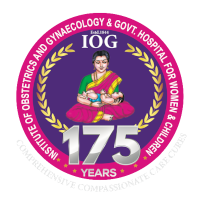There are several important issues that must be considered when thyroid disorders occur for the first time during pregnancy or pre-existing thyroid dysfunction become pregnant. Both hypothyroid and uncontrolled thyrotoxicosis during pregnancy are associated with adverse pregnancy outcome.
The Fetal brain requires transplacental transfer of maternal Thyroxine throughout pregnancy for normal Neurocognitive development.
During your antenatal visit your doctor will advise you to take thyroid function test
TRIMESTER SPECIFIC CUT OFFS OF TSH VALUES:
- First trimester : 2.5 µIU/mL
- Second and third trimester: 3 µIU/mL
Maternal thyroid hormones crosses the placenta and is an important source of thyroid hormone for your growing fetus in the first trimester. Thyroid hormones are important for fetal brain growth before the fetal thyroid starts synthesizing thyroid hormones at approximately 12 weeks gestation.
TYPES:
- Hypothyroidism
- Hyperthyroidism
Adverse effect of Hypothyroidism:
- Maternal:
- Spontaneous miscarriage
- Preterm delivery
- Anemia
- Gestational hypertension
- Placental abruption
- Postpartum hemorrhage
- Fetal:
- Low birth weight
- Prematurity
- Respiratory distress syndrome
- Perinatal mortality
- Neurocognitive impairment
Your doctor will prescribe thyroxine tablets if you are diagnosed with hypothyroidism. Taking tablets on empty stomach, ideally an hour before any food or drink is advisable. Periodic measurements and opinion from endocrinologist will help in managing thyroid disorders.
HYPERTHYROIDISM:
Hyperthyroidism is defined as a decreased (<0.1 µIU/mL) or undetectable (<0.01µIU/mL) TSH value and an increased free T4 and or free T3 measurements.
Symptoms:
- Tremors
- Weight loss
- Sweating
- Palpitations
- weakness
Complications:
- Miscarriage
- Placental abruption
- Preterm labour
- Preeclampsia
- Maternal heart failure
Foetal complications:
- Foetal hyperthyroidism leading to growth restriction, advanced bone age, craniosynostosis, hydrops and intrauterine demise.
Anti-thyroid drugs will be prescribed by the endocrinologist according to the severity of the disease and periodic follow up is necessary to maintain the normal thyroid levels.
So, taking proper treatment for thyroid disorders is very important in antenatal period to avoid complications.
